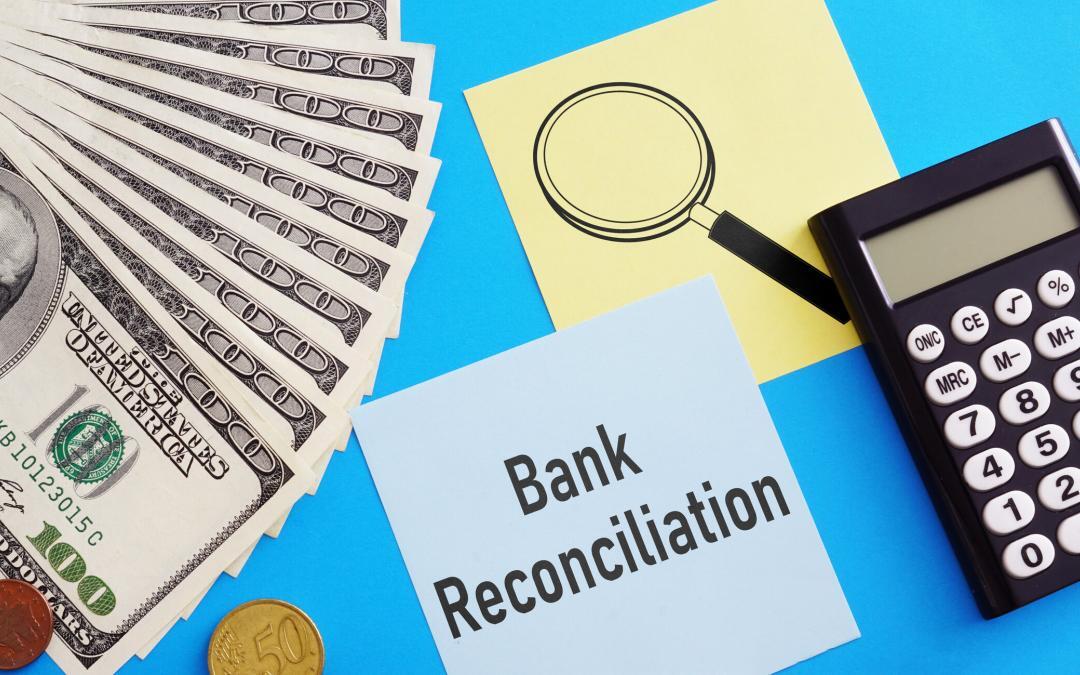
When most think about bookkeeping services for dental practices they think about the accurate recording of monthly income and expenses. While this is a critical element of proper bookkeeping, it’s also important that your practice’s financial records match what your bank’s records show. That’s where monthly bank reconciliation comes into play.
Monthly reconciliation plays a key role in helping you to detect any discrepancies between your bank’s records (both checking and credit accounts) and your own records. Being proactive in conducting a monthly reconciliation allows you to detect and address any issues early on BEFORE they become real headaches down the road.
Aspects of Bank Reconciliation
There are two primary aspects of bank reconciliation: documentation review and analytics review.
Documentation review is, as you would expect, a thorough review of that month’s financial activity. Each month your staff (or your bookkeeper) reviews all your monthly transactions and compares those to the transactions connected to the corresponding bank account. For example, you may have receipts associated with a recent staff luncheon. However, the credit card statement doesn’t quite match up to the expense. Even if it’s a small difference, these types of discrepancies can become significant over time.
Analytics review is a little different. Here you are using historical income and expense entries to identify things that may seem out of the ordinary. While there may be good reasons things have deviated from the past, it’s a great approach to help you quickly identify potential problems.
Among all Bookkeeping Services for Dental Practices, Why is Monthly Reconciliation So Important?
There are several reasons monthly reconciliation is important. Here are just a few:
Timely Fraud Detection
Unlike personal accounts, many are unaware that businesses are THEMSELVES responsible for detecting and preventing fraudulent activity on their accounts. Timely and detailed reconciliation helps your dental practice spot fraud early on, potentially saving you significant money and stress.
Just like consumer credit cards, the first indication that your business credit card has been compromised is typically a fraudulent charge found on your practice’s statement. Obviously, the sooner charges like these can be detected and the card can be cancelled, the better!
Ongoing Business Monitoring
In a very practical way, ensuring your records match the bank’s records is critical to running your practice. If a mistake in your records leads you to believe you have more money than is ACTUALLY in your bank account, you may end up over-extending yourself.
Reconciliation also allows you to see which checks are yet to be cleared, and often prompt a healthy investigation into the cause. If a check gets lost in transit, it’s best to address that early and reissue a new check to avoid any late fees that may be looming.
Tracking Cash Flow
As they say, “cash is king.” No matter how busy or successful you may feel, every business must possess the cash to meet its obligations. Billing and cash are often two very different things. With bank reconciliation, you can clearly see how the cash flows into your practice and contributes to your bank balance, allowing you to properly plan for payments.
This is especially true for smaller dental practices, who may have lower amounts of capital to work with each month. For these practices, it’s critical to be aware of cash flow throughout the month, NOT just at month end.
Uncovering Errors
While it’s rare, banks do sometimes make mistakes and a detailed reconciliation will allow you to pinpoint the issue and address it with your bank.
More often, the issue will be in your own records. Transposed numbers, misread receipts, and failure to record transactions are all common sources of errors. In most cases, these issues can be rectified easily as long as they are detected early.
Reducing Expenses
Have you ever signed up for a free trial subscription only to forget about it until you see a charge show up on your credit card statement because you failed to cancel? The same thing happens to business. Or what about surprise credit card or banking fees you didn’t even know you were paying until you took a real close look?
Without regular monthly reconciliation, it could be several months before charges like this are detected and addressed.
As you can see there are several reasons it makes sense to stay on top of your practice’s finances by conducting a monthly bank reconciliation. At STAC Bizness Solution we specialize in providing quality bookkeeping services for dental practices. To learn more, please visit us at https://stacbiz.com or call us at 844-424-9637.
For a Limited Time, Get Our Free Guide: 7 Key Financial Practices That Separate Thriving, Growing Practices From The Rest.
LET US KNOW WHERE WE SHOULD WE SEND YOUR FREE GUIDE!
7 Key Financial Practices That Separate Thriving, Growing Practices From The Rest.

There’s no denying it. Creating a thriving practice is about much more than practicing medicine!
Topping the list of “other” priorities is your practice’s financial management. In this short guide, the experts at STAC Bizness Solutions outline 7 financial best practices that differentiate struggling practices from those which are highly profitable and experiencing healthy levels of growth.

